At the behest of state lawmakers, Wyoming in 2024 took unprecedented steps to regulate shed antler hunting — actions that have started a western trend. Specifically, the Equality State now requires out-of-state residents to get a conservation stamp and to wait a week, giving residents a head start.
Those changes caught some shed-seeking Westerners off-guard. But the majority of antler seekers are relishing the new rules, wildlife officials now know.
“High levels of approval, in and of itself, shows that people were really receptive to the regulation,” said University of California-Berkeley PhD candidate Sam Maher, who’s been studying antler hunting in Wyoming since 2023.
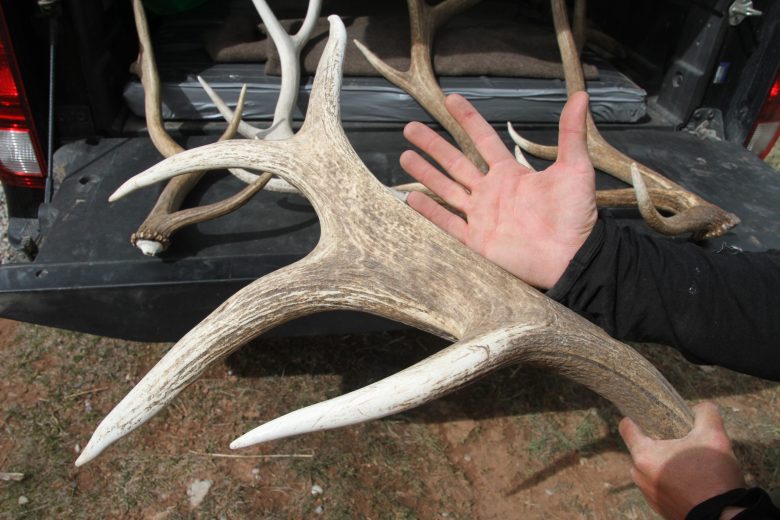
In 2024, Maher and her collaborators surveyed 318 shed hunters online and in person at trailheads within the Greater Yellowstone Ecosystem, where there’s a seasonal closure on antler gathering until May 1. The results suggest that 64% of all respondents were in favor of the new restrictions on non-resident antler gathering. To no surprise, Wyoming residents who stood to benefit were the most on board: 87% favored the new rules, versus just 27% of non-residents.
The new regulations also motivated more locals to hit the hills. Some 22% of the Wyoming residents that Maher and company surveyed said they “would not have shed hunted otherwise,” but went out because there was the perception of less competition. Non-residents, meanwhile, were effectively dissuaded from coming to Wyoming, even after they could on May 8. Some 29% of those surveyed reported not coming because of the new regulations.
“We asked residents and non-residents how it changed their behavior,” Maher said of the new rules. “It seemed like the increased enthusiasm by residents offset the fact that non-residents couldn’t come in for the first week.”
Studying under UC-Berkeley professor and seasonal Wyoming resident Arthur Middleton, Maher has been examining the burgeoning pursuit of antlers in the American West for a chapter in her dissertation. The first batch of data she received after her 2023 surveys provided new insights into the demographic makeup of shed hunters: The majority are white male westerners who like nature and exercise and are not motivated by the high dollar that elkhorn can fetch. She’s adapted the results into a user-friendly story map dubbed “Brown Gold Rush.”
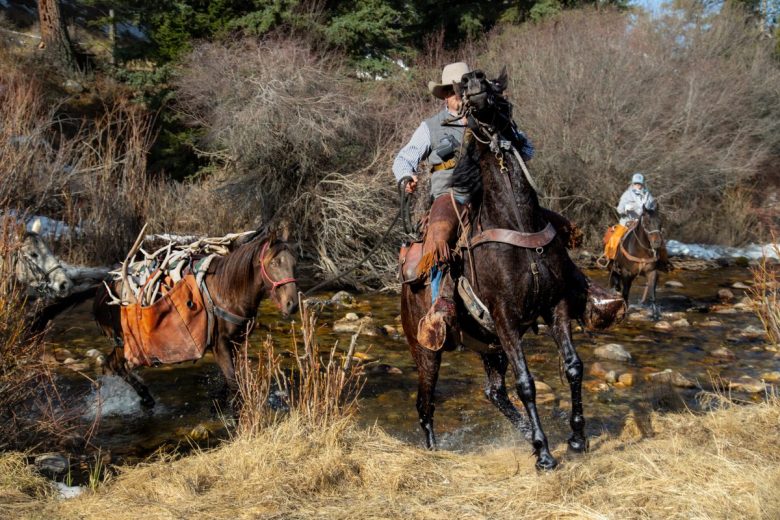
There’s also a greater goal for the research. Maher and the University of Wyoming’s Tyler Kjorstad are working on an academic paper, “The emerging need to manage scavenged wildlife resources,” that’s going through the peer-review process with the Journal of Biological Conservation.
Kjorstad, who’s with UW’s College of Business, is also working with Maher on another paper estimating the economic contribution of shed hunting in Wyoming. All the data they’re amassing, he said, is useful outside of academia.
“There’s information that’s advantageous for policy managers and ecologists, and in my opinion, economists,” Kjorstad told WyoFile.
The steps that Wyoming has taken to regulate shed antler hunting are “a big deal,” Maher said. Those regulations started with seasonal closures back in 2009 to protect wintering wildlife, but have since evolved to protect the experience of shed antler hunting. Antlers fall into a “weird gray area” because, after they separate from an animal, they’re typically not protected from commercial sale, like wild game meat is.
“The act of regulating this is pretty unprecedented and interesting,” Maher said. It sets the stage, she said, for land and wildlife managers to regulate “similar resources,” naming bird feathers, snake skins and seashells.
Already, neighboring states are copying Wyoming’s approach to regulating shed hunting. Starting in 2025, for example, out-of-state shed hunters in Idaho will have to possess a nonresident hunting license — a $185 investment. The Montana Legislature also is weighing a bill that proposes a $50 non-resident license fee for shed hunting, according to the Montana Free Press’ bill tracker.


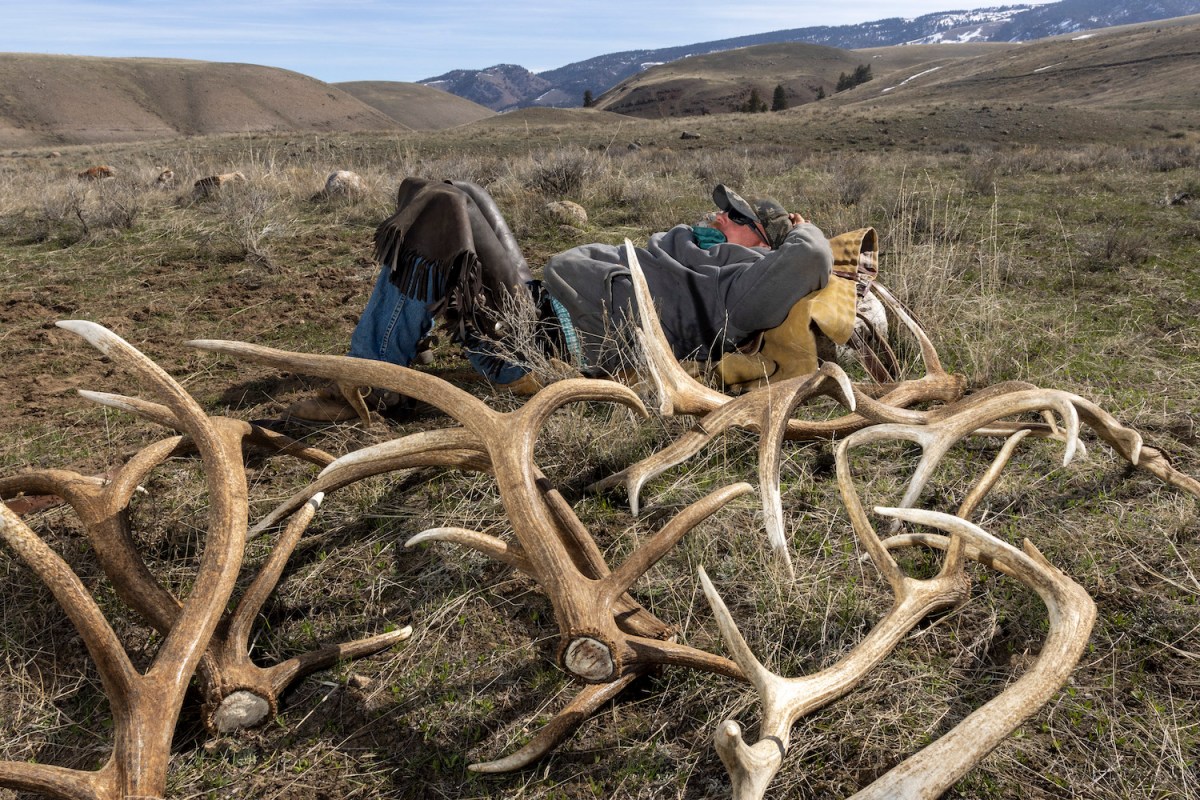
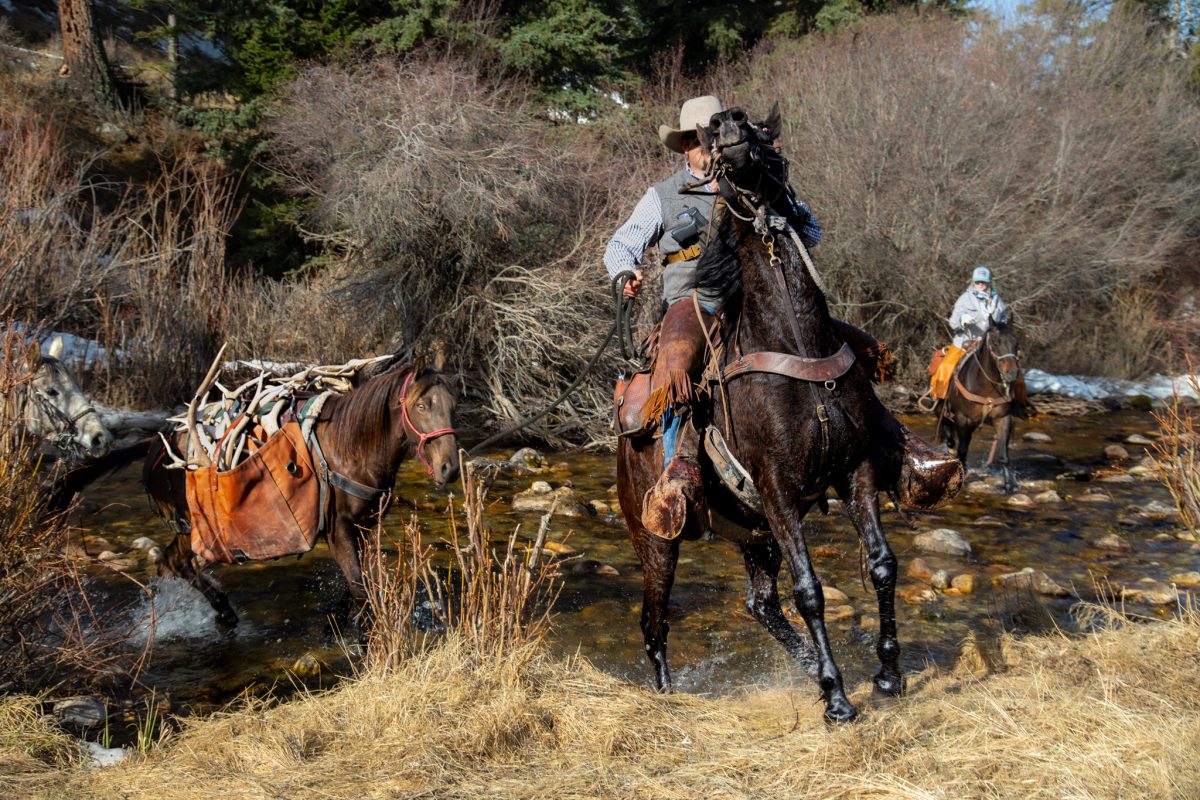
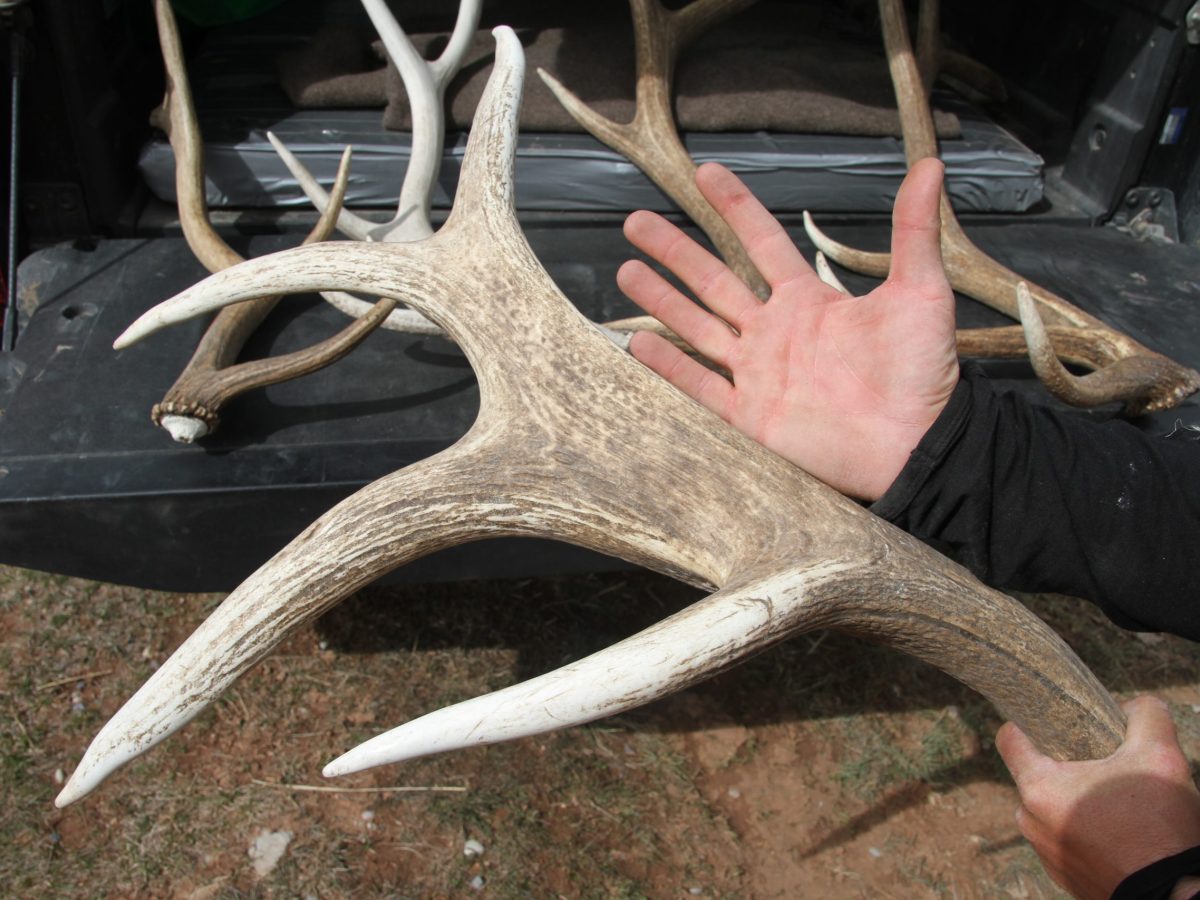
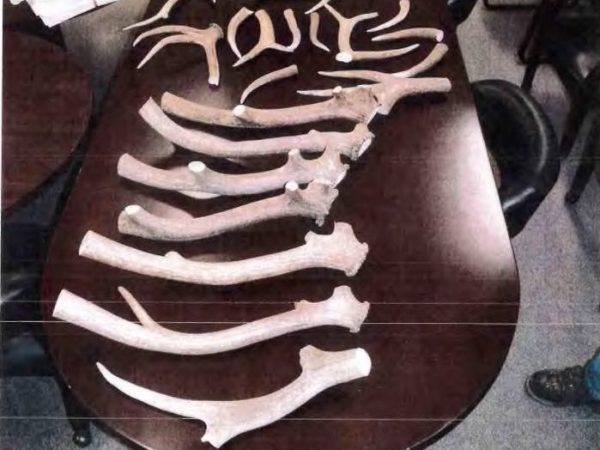
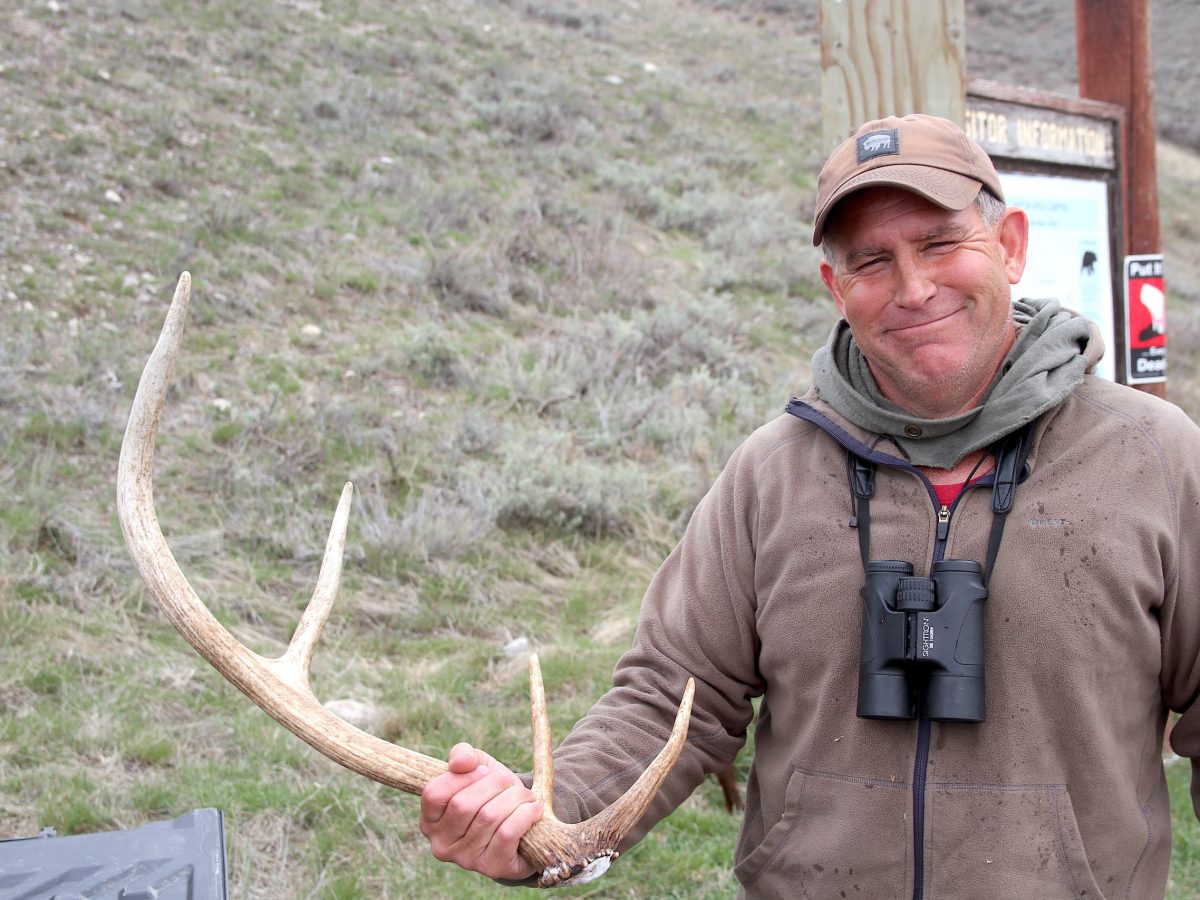
Shed antlers are a vital source of relatively scarce bioavailable minerals (calcium, phosphorus, potassium) for critters like squirrels, mice, and porcupine- which are vital prey for all kinds of other critters, like raptors and felines- which besides making ecosystems awesome, make ecosystems function. If someone wants to pick up a shed antler or two, that’s cool, but they should acknowledge that hundreds of people permanently removing thousands of pounds antlers from an ecosystem each year is not conservation.
My 2 cents, if non residents have to purchase a conservation stamp in order to shed hunt, then residents should have to have one also. Period!
Once the shed naturally leaves the animals head how can the state regulate its harvest? Once it is no longer on the animal it is not wildlife. If the law is researched the shed becomes a forest resource and should be managed under Forest Service regulations.
What do the motels, restaurants, bars, and gas stations think of the law with the lost business of many non-residents that won’t come to Wyoming now?
I’m a new resident of Wyoming, I’m utterly confused as to how they(government) can charge people to pick up antlers that have been shead, that’s like charging to look at the sky, or feel the wind, iykyk. Dumbest thing ever.
Thay are more talking about in the elk refuge in Jackson hole and Yellowstone
Well it’s antlers that fell off a deer so it’s about as important as what falls out the other end maybe the states should find something less pointless to do with there time and money and less pointless laws about more pointless things fix the roads fix the bridges find industry jobs make Montana something instead of making pointless laws about what falls off a deer that the states now say they own like all the trees and the water and the land greedy crazy nasty government
Yeah, and why should I have to get a permit to mine for gold on public land? Or cut down 20 acres of timber in the national forest? It’s just rocks and wood.
Mr. Atkins, many federal areas are closed to everyone to minimize disturbance to wintering wildlife, so there is no ‘home court’ advantage.
Mr. Steele, the bulk of funding for Wyoming G&F comes from hunting licenses. Photographers and wildlife watchers don’t contribute a dime, and maybe they should, even if it’s voluntary.
Mr. Crosby, how would you feel if the same per-capita percentage of the population of PA came from out-of-state to scavenge your white-tail antlers? I think you’d want an advantage. They won’t though, because PA is mostly private land.
Mr. Morse, most of your argument is horse poop. If there were no regulations, there would be no wildlife. CWD is real. You’re right about sportspeople; they pay for the agencies that manage wildlife. Wildlife watchers, photographers, and the average tourist do not.
Wildlife belongs to us all equally. Residents typically already have a home court advantage living in the area being about to hike about pre-scouting the area locating sheds.I personally think it’s unfair and I’m not a shed hunter. Out of state hunters already pay a higher fee for license which I’m fine with. An unfair imposed advantage I am not okay with. It is discriminatory. Just my 2 cents.
The reason an early start was implemented for residents was because non-residents outnumbered us 10 to 1 or worse. In 2023, before the regulation was began, I counted license plates where I hunt shed antlers. Nonresidents 53, residents 4. By far the majority were from one certain adjoining state.
Don’t you think that’s a little ridiculous? As pointed out in the article, many Wyoming residents gave up the pastime because of that. That’s just not right, in my opinion. Thanks for your opinion.
I see a non-resident Binocular Fee coming soon so you’ll pay to just look at the wildlife in Wyoming.
It’s so important to keep our wildlife and habitats safe, clean, and protected. What we have been seeing in the West is a literal rodeo, with little to no regard for bumping wildlife at their most sensitive, and extensive degradation of roads and lands by UTVs. A lot of this comes from out of state users. People often care more for their home than places they are only visiting. If this can deter bad actors, I can only see this as a good thing. Additionally, this doesn’t even cover the whole state! There are lots of other places in Wyoming, outside this specific closure zone, not impacted by this new regulation where out of state shed hunters can look for antlers to their heart’s content.
We would have traveled from Pennsylvania as money spending tourists for a shed hunting trip. Any state allowing early season for residents will never see our $$ . We will instead go to Canada to remote and no competition areas for moose paddles. Residents already have an advantage with local ties and relationships, let THAT be their advantage! Federal lands should be EQUAL for out of state and locals. Happy hunting
I continue to find the whole idea of charging people a fee to look for sheds outrageous. Just like those biologists who have proven CWD a lie , it’s hard to know when to trust anything that comes from the wildlife regulatory agencies. The Invasive species is another topic especially when it comes to the “clean and dry your boat” before moving from one body of water to another yet millions of waterfowl fly from Canada to Mexico each year stopping at ponds,rivers and streams without ever cleaning and drying their feet and feathers . Sportsman continue to be charged for outdoor activities and the regulations almost require an attorney to understand. Some states are better than others but it seems there’s a continuous attempt to raise fees and add additional costs to sportsman.